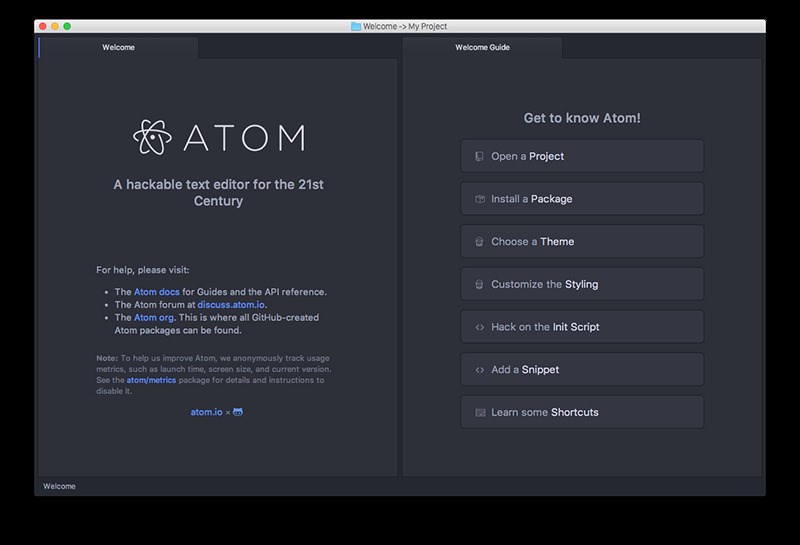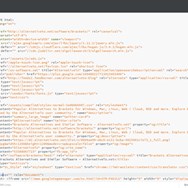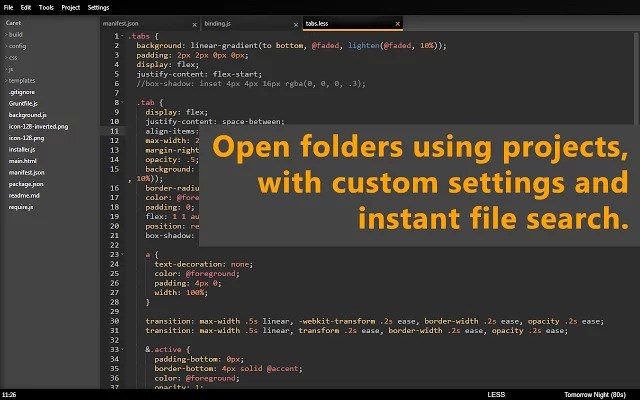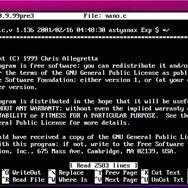

In addition to customization, Vim supports plugins out of the box. You can also create conditional configurations that are effective only when editing a particular type of file. You can provide options on the fly or through a config file. Vim provides out-of-the-box syntax highlighting for many languages and file types.
#EMACS VS AQUAMACS CODE#
You can also write programs in your favorite programming language, with features like code completion, syntax highlighting, and syntax checking, similar to popular IDE's. You can start simple and use it to edit configuration files quickly. In fact, Vim keybindings are so popular that other editors like Emacs and even many IDE's provide a way to enable/emulate them. When you first start with Vim, these commands feel awkward but, with a little practice, they make text editing highly efficient. You can combine them logically to compose your own actions without requiring specific commands or functions or memorizing some weird combinations of keys like Ctrl+Shift+F4 to perform actions. Vim structures these command chains semantically, reflecting our thought process, similar to sentences in English with verbs and objects.

For example, "dw" deletes all text until the next word, "d$" deletes until the end of the line, and "c3w" changes all text until the third word. The best part is you can combine these two ideas to create powerful command chains. For example, press "i" to insert text, "c" to change, "d" to delete, and so on. In addition to navigation commands, Vim provides intuitive mnemonics actions. Vim provides many of these navigation commands. For example, "3w" moves to the beginning of the third word. You can also combine these with numbers to move faster. For example, pressing "w" takes you to the beginning of the next word, "b" back to the previous word, and "$" to the end of the line. You can move your cursor with the arrow keys (or "h", "j", "k", "l" to keep your hand on the home row) like other text editors but, when you start using text objects, you increase your efficiency a lot. Vim provides simple and fast navigation commands. It also allows a good experience when typing in restricted spaces such as when commuting on a train or bus. No context switching with the mouse improves your comfort and efficiency. You can do everything in Vim without taking your hands off the keyboard. You can even have multiple Vim sessions open at once without impacting your machine's performance. Combined with a super-fast startup time and zero latency, you can use Vim anytime, anywhere, including over remote connections via SSH and low-powered hardware. Vim runs primarily on the terminal with a small footprint. Vim configuration is portable, and you can have the same Vim experience by copying your configuration files from one machine to another. Vim is also available for several other operating systems, including Unix, macOS, and Windows. In addition, many distributions include Vim goodies such as plugins, extensions, and dictionaries with their standard package manager.
#EMACS VS AQUAMACS INSTALL#
If not, you can install it using your distribution's package manager. It's installed by default in most Linux distributions.

I could list many other features, but this is not what makes Vim different. Vim has all the features you'd expect from a modern text editor, such as: Vim's name is a contraction for Vi Improved as it extends the original vi text editor developed for the Unix operating system in the 1970s/80s.

I use Vim to write documentation, code in different programming languages, and I wrote an entire book (400+ pages) using Vim exclusively. I've been using Vim in one way or another for over 20 years, but around five years ago, I decided to use Vim for all my text needs.
#EMACS VS AQUAMACS SOFTWARE#
Vim is a lightweight but powerful all-purpose text editor that addresses all your text editing needs, from basic configuration file editing to emulating entire Integrated Development Environments (IDE) for software development. Let's jump into the editors, with Vim up first. We are talking about features, comparisons, and personal experiences. Each text editor is represented by one contributor with a great deal of experience with the given editor. I asked several of our contributors to write up a "pro" position for Vim, Nano, and Emacs. However, not all text editors are alike, and with more time at the terminal, you might find that a particular editor works best for you. They aren't something that most users put a lot of thought into.


 0 kommentar(er)
0 kommentar(er)
